
Olympic Gods in the Gulbenkian Collection
Greek religion was eminently social in character. It was the religion of the polis, the Greek city-state, consisting of external and collective practices, without any apparent room for private worship. On certain days, all citizens, without exceptions, would gather in front of the temple dedicated to the god of the city to ask jointly for his/her favour for the good of all. The priests were civic magistrates and the whole ceremony had an official character.
Divine sanction gave authority to the laws of the polis, which therefore represented the will of the gods. However, the laws of the polis could not contradict the dictates of the gods, at the risk of unleashing serious consequences. Only thus could the polis survive and prosper
Coexisting alongside the official religious manifestations were the secretive mystical cults, of which the Eleusis mysteries, Orphism and the Dionysus cult stand out. These required an initiation rite after which the believer could participate in the ceremonies and enjoy the benefits promised. Which is not to suggest that they were in any way exclusive. In the Eleusis mysteries, celebrated annually for almost two millennia, first all of Athens was initiated, then all the remaining Greeks and, finally, even the Roman emperors. For its celebration, at the end of September, sacred truces would be proclaimed. The only restrictions placed on the presence of initiates were a knowledge of Greek language and innocence of the crime of murder (“clean hands and intelligible speech” according to the solemn proclamation on the opening day).
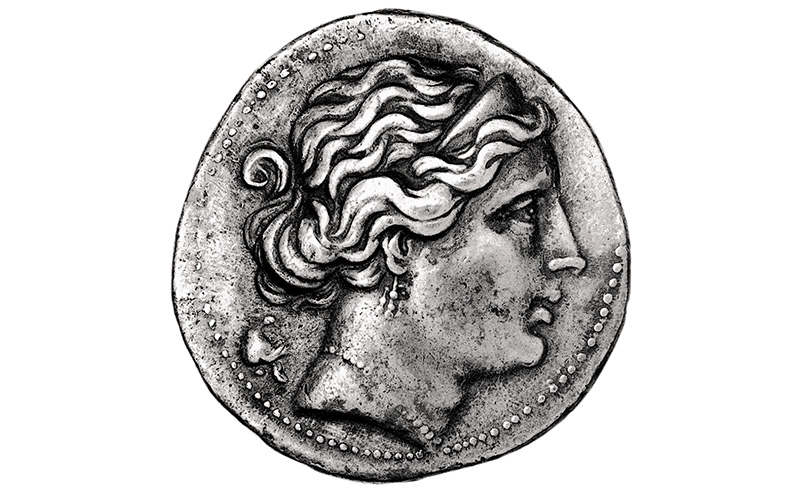
Aphrodite
Aphrodite, the goddess of love and beauty, is of more recent origin. Originating in Cyprus, her cult spread to Sparta, Corinth and Athens. The feasts held in her honour were called aphrodisiacs and were celebrated by all of Greece.
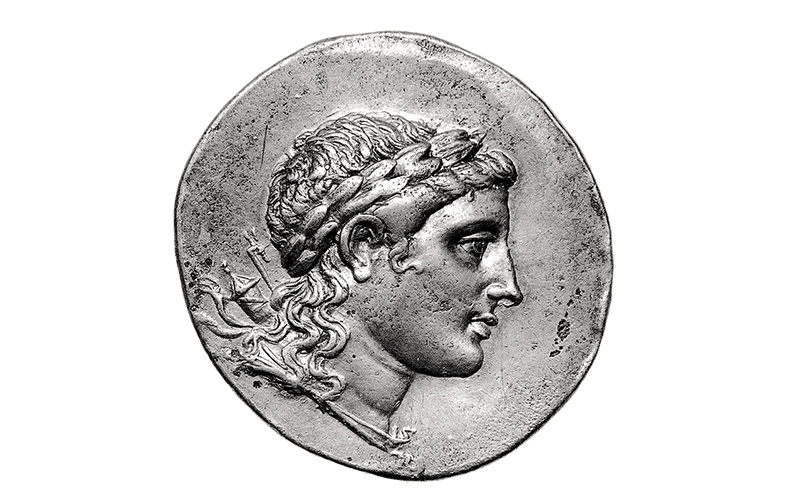
Apollo
Legalism is defined as the attempt to obtain the favour of the gods by complying with their laws, expressed for the first time in Hesiod’s Works and Days. His supreme representative is the god Apollo, who makes his judgements known through the Oracle of Delphi, a figure of incalculable influence in the Greek world.
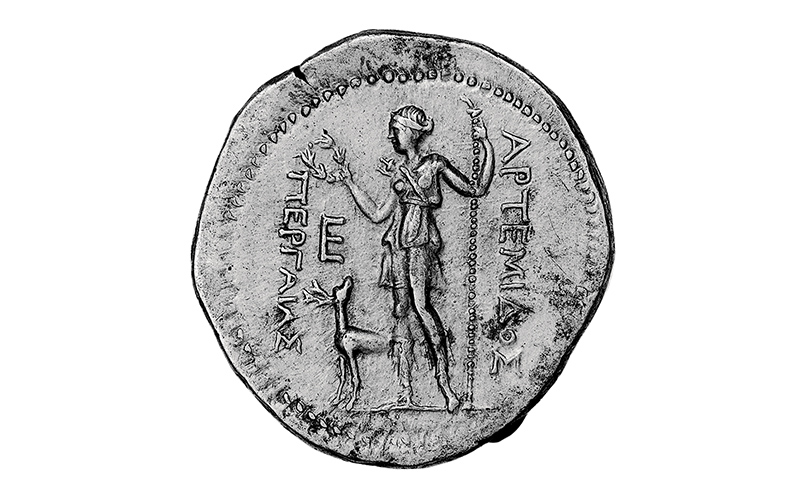
Artemis
Artemis was the goddess associated with wild animals and hunting. During the Archaic and Classical periods, she was said to be the daughter of Zeus and Leto and the twin sister of Apollo. Later, she also became associated with the moon and magic.
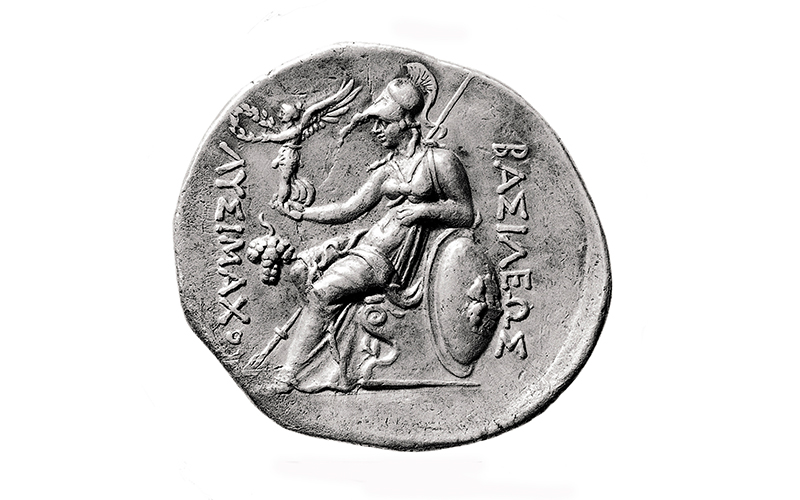
Athena
Athena, was the goddess of war, intelligence/wisdom and the arts. As opposed to the previous gods, she is of Minoan origin, where she was the patron goddess of the palace, but it was via the Mycenaeans that she reached the Greeks as an armed deity and protectress. She was the patron goddess of the city of Athens.
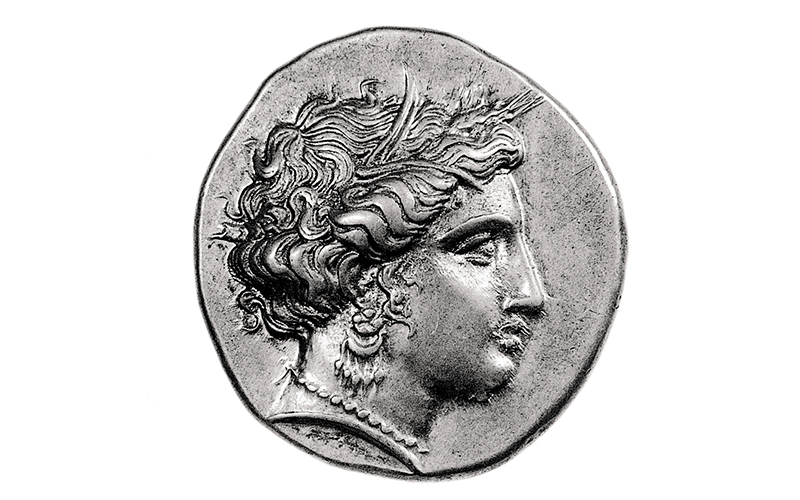
Demeter
Demeter, “mother of wheat” (her daughter Persephone was the “child of wheat”), was the goddess of the harvest and, by association, agriculture and fertile soils. As the goddess of agriculture, she made various long journeys accompanied by Dionysus to teach man how to care for the land and the plants.
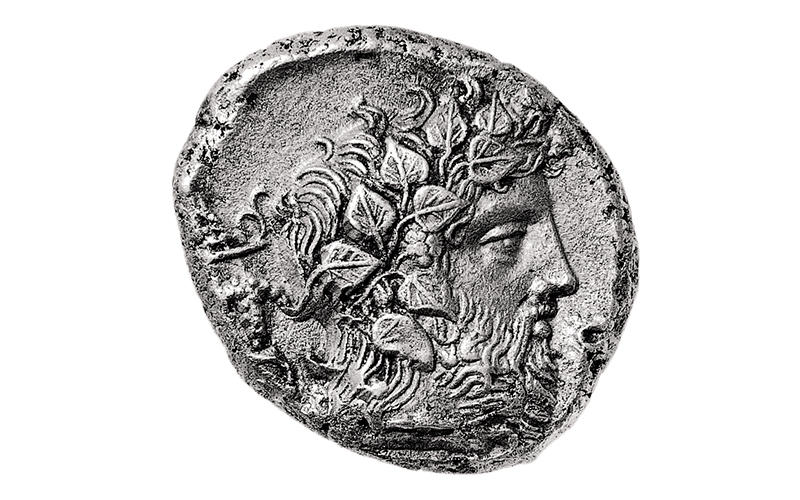
Dionysus
Dionysus is depicted on many coins in the Gulbenkian Collection: half-naked and mounted on a donkey, with a jug of wine in his hand, a type that has vine leaves and bunches of grapes on the reverse, symbolizing his world.
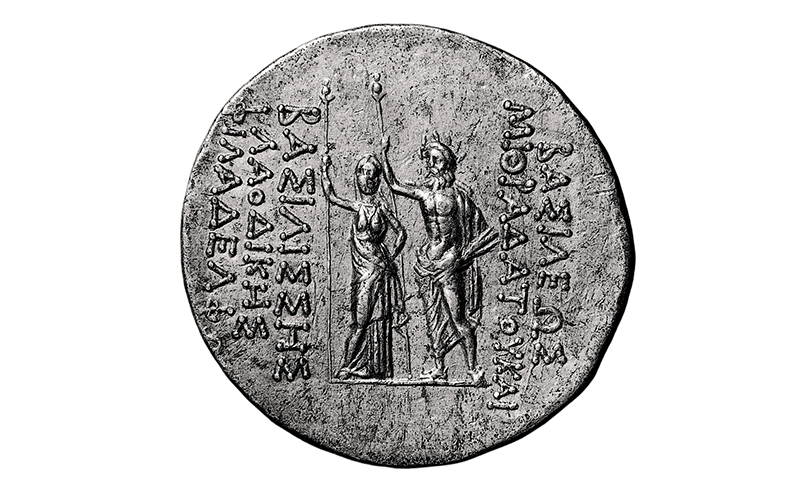
Hera and Zeus
Hera, the wife of Zeus, was the goddess of marriage. Portrayed as jealous and aggressive, she hated and persecuted Zeus’s lovers and the offspring of these relationships, so much so that she tried to kill Herakles while still at a young age.
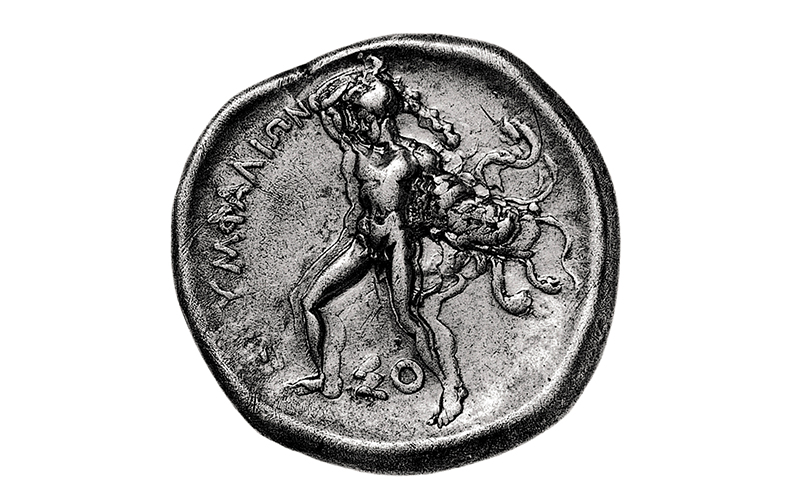
Herakles
Herakles, the greatest and most popular of the Greek heroes, was the son of Zeus and Alcmena, a mortal with whom Zeus had a liaison. But to make him immortal, Zeus asked Hermes to carry him to Hera’s side while she slept and to let him suckle.
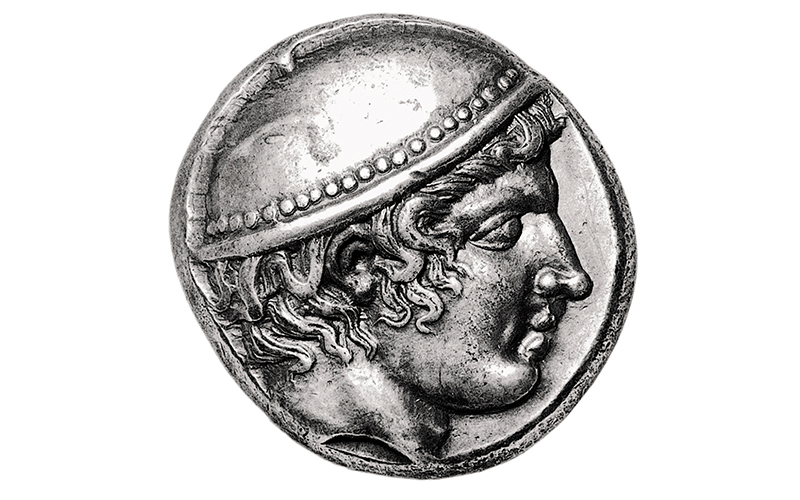
Hermes
Hermes, messenger or interpreter of the will of the gods, is the god of shepherds, protector of flocks, and travellers. In his honour, statues were erected beside roads (‘herms’). Later, he also became the god of commerce and even thieves. It is said that he was the inventor of the scales.
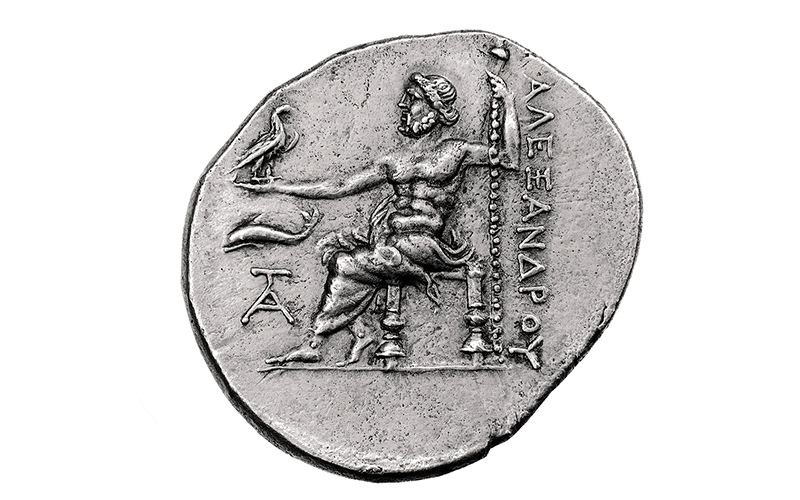
Zeus
Zeus, the god of atmospheric phenomena and daylight, also called the god of the firmament, presides over Olympus. Among the most celebrated statues erected in his honour is that at Olympia, one of the Seven Wonders of the Ancient World, long since disappeared.